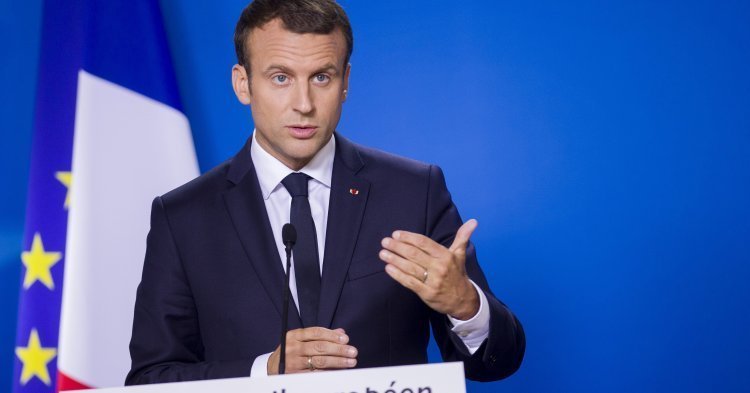This proposition is based on a unanimous and undisputable assessment: the alarming reinforcement of Euroscepticism, the lack of transparency of the policies carried out by the institutions, the weak participation of the citizens to the development of these policies, and the ever greater gap between the citizens and the Union. In short, it intends to bring a solution to the recurrent denunciation of the democratic deficit at the European level. If many welcome this proposal with optimism, it seems however fundamental to keep an ounce of vigilance and to put forward some reservations concerning the formula that would be definitively set up by the end of the year. These reservations concern the choice of the methods that will be used as well as the intended purposes of such an exercise. [1]
The necessity to adopt a “good” method
The democratic conventions’ modalities of organisation wanted by Emmanuel Macron remain, for now, quite unclear. Yet, if we refer to what has been initially imagined during the presidential campaign, ideas still accessible on the presidential majority’s website, it’s safe to bet that these conventions would be organised following a similar model to the one adopted for the “En Marche” movement’s emergence. Yet, if the “itinerant marketing” method consisting of going door to door and collecting citizens’ criticisms was able to create a favourable dynamic for the creation of a new political movement in preparation for the presidential election, it would be quite unwelcome, and even counter-productive, to extend it to the question concerning the future of European democracy. Such a method would not be constructive, for several reasons:
This method does not allow an equal and legitimate representation of European citizens:
It is obvious that it wouldn’t be possible to consult all the citizens (only 100,000 were consulted to launch the action plan of the “En Marche” movement). Yet, to relaunch the European project and make him closer to the citizens’ expectations, it is necessary for the participants’ legitimacy in such conventions to be irreproachable. Consultation should also be as egalitarian as possible, in order to take into consideration all the involved interests: all the socio-professional categories should be consulted, as well as the associations or elected representatives from all levels. Opting for another method would be taking the risk of taking the citizens a little more away from the European horizon.
This method does not seem to favour debate:
Consultation should likely serve as a basis to collect the citizens’ fears, criticisms and preoccupations related to Europe. Not only are these fears, crystallised around the same problematics, already well known, but also, this consultation alone wouldn’t be enough to result in the construction of a European project devised and discussed for and by the citizens. And this is especially the case since these consultations should serve as a basis for the construction of a roadmap, and thus of a project, by our governments.
Democracy requires more than the simple consultation of some citizens. Europe needs to be (re)built with and by its peoples. Consultation does not allow this, the top-down method consisting of always starting from the top to the bottom, and not from the bottom to the top. Moreover, this method would probably result in a collection of ideas, too abstract and too general, unable to end up in the construction of a real political project, based on concrete ideas and nourished with debates on precise, determined and framed subjects. Yet, Europe’s future certainly won’t build on a list of grievances. Likewise, the future of European democracy cannot be based on a consultative process which place again the governments at the core of the construction of the political project. Finally, these conventions should, according to Emmanuel Macron, last between six and ten months maximum. This is far too little to foresee an in-depth and considered debate. As a reminder, 18 months were necessary for the Convention on the future of Europe which led to the project of a Constitution for Europe.
This method does not allow the European interest to arise:
Each Member State should organise, according to the methods of its choosing, these democratic conventions. This process thus risks bringing forth, not a common European interest, but several national interests, contradictory by nature. In this case, who would be the most likely to arbitrate and judge if not the Council? This is what it already did for the Treaty of Lisbon after the negative referendums in France and in the Netherlands, and this only made the citizens’ distrust against the Union grow. If there are Conventions, having them organised at the European level is essential.
The necessity to pursue a more ambitious objective
Consultations should lead to the elaboration of a roadmap by the different Member States’ governments sent to the European institutions. One can hardly be satisfied of such an approach because:
Don’t let the Council monopolise decision-making
Letting the Council, the intergovernmental institution par excellence, decide the orientation to take following the consultation is not reassuring to the extent that it could manipulate the collected data to legitimate and then justify the direction of the policies favoured by the institutions. Yet the citizens could not be satisfied with a consultation orchestrated for the purpose of legitimating the powers in place. The revelation of such a trick would widen the gap between Europe and the citizens, and would make the Eurosceptic wave, already much too present, grow even more.
The democratic conventions must set off the treaties’ revision process
The organisation of democratic conventions should, unconditionally and promptly, lead to the modification of the European treaties. But that does not seem to be the objective demonstrated by the presidential majority. Yet, this process would be the only one capable of improving the functioning of the Union and of answering the preoccupations that precisely justify the setting up of democratic conventions.
Opening the democratic conventions, yes! But let’s be careful so that they cannot be perceived as a gadget carrying additional disenchantment…



Follow the comments: |
|
